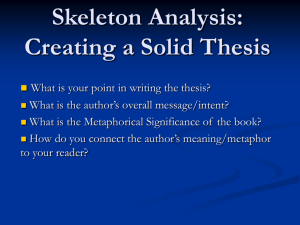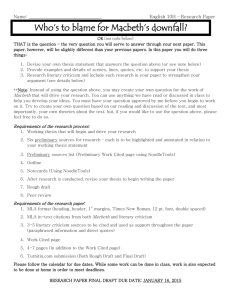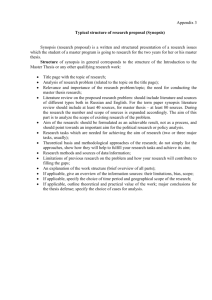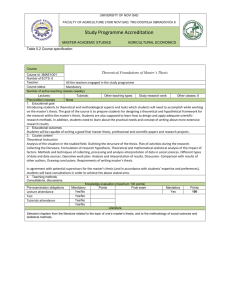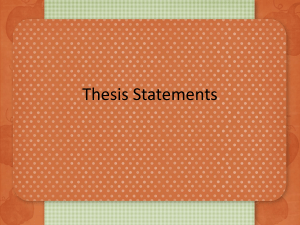Abstract
advertisement
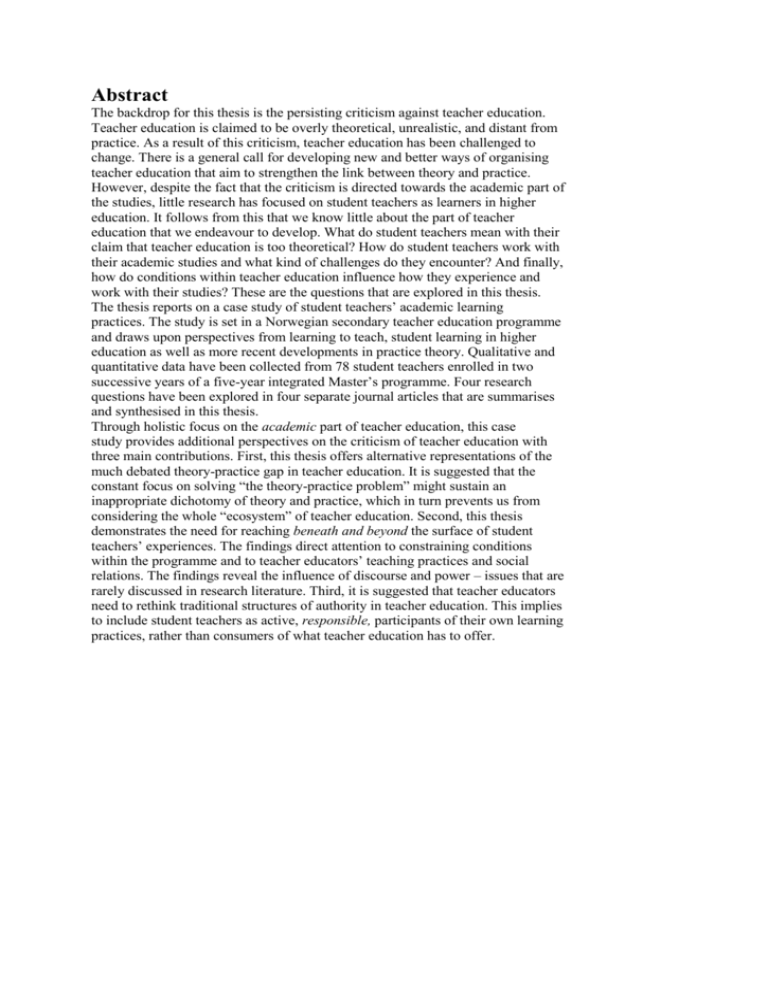
Abstract The backdrop for this thesis is the persisting criticism against teacher education. Teacher education is claimed to be overly theoretical, unrealistic, and distant from practice. As a result of this criticism, teacher education has been challenged to change. There is a general call for developing new and better ways of organising teacher education that aim to strengthen the link between theory and practice. However, despite the fact that the criticism is directed towards the academic part of the studies, little research has focused on student teachers as learners in higher education. It follows from this that we know little about the part of teacher education that we endeavour to develop. What do student teachers mean with their claim that teacher education is too theoretical? How do student teachers work with their academic studies and what kind of challenges do they encounter? And finally, how do conditions within teacher education influence how they experience and work with their studies? These are the questions that are explored in this thesis. The thesis reports on a case study of student teachers’ academic learning practices. The study is set in a Norwegian secondary teacher education programme and draws upon perspectives from learning to teach, student learning in higher education as well as more recent developments in practice theory. Qualitative and quantitative data have been collected from 78 student teachers enrolled in two successive years of a five-year integrated Master’s programme. Four research questions have been explored in four separate journal articles that are summarises and synthesised in this thesis. Through holistic focus on the academic part of teacher education, this case study provides additional perspectives on the criticism of teacher education with three main contributions. First, this thesis offers alternative representations of the much debated theory-practice gap in teacher education. It is suggested that the constant focus on solving “the theory-practice problem” might sustain an inappropriate dichotomy of theory and practice, which in turn prevents us from considering the whole “ecosystem” of teacher education. Second, this thesis demonstrates the need for reaching beneath and beyond the surface of student teachers’ experiences. The findings direct attention to constraining conditions within the programme and to teacher educators’ teaching practices and social relations. The findings reveal the influence of discourse and power – issues that are rarely discussed in research literature. Third, it is suggested that teacher educators need to rethink traditional structures of authority in teacher education. This implies to include student teachers as active, responsible, participants of their own learning practices, rather than consumers of what teacher education has to offer.
